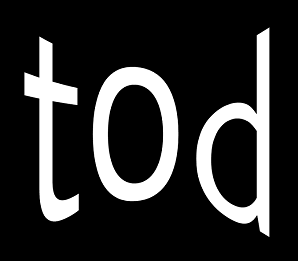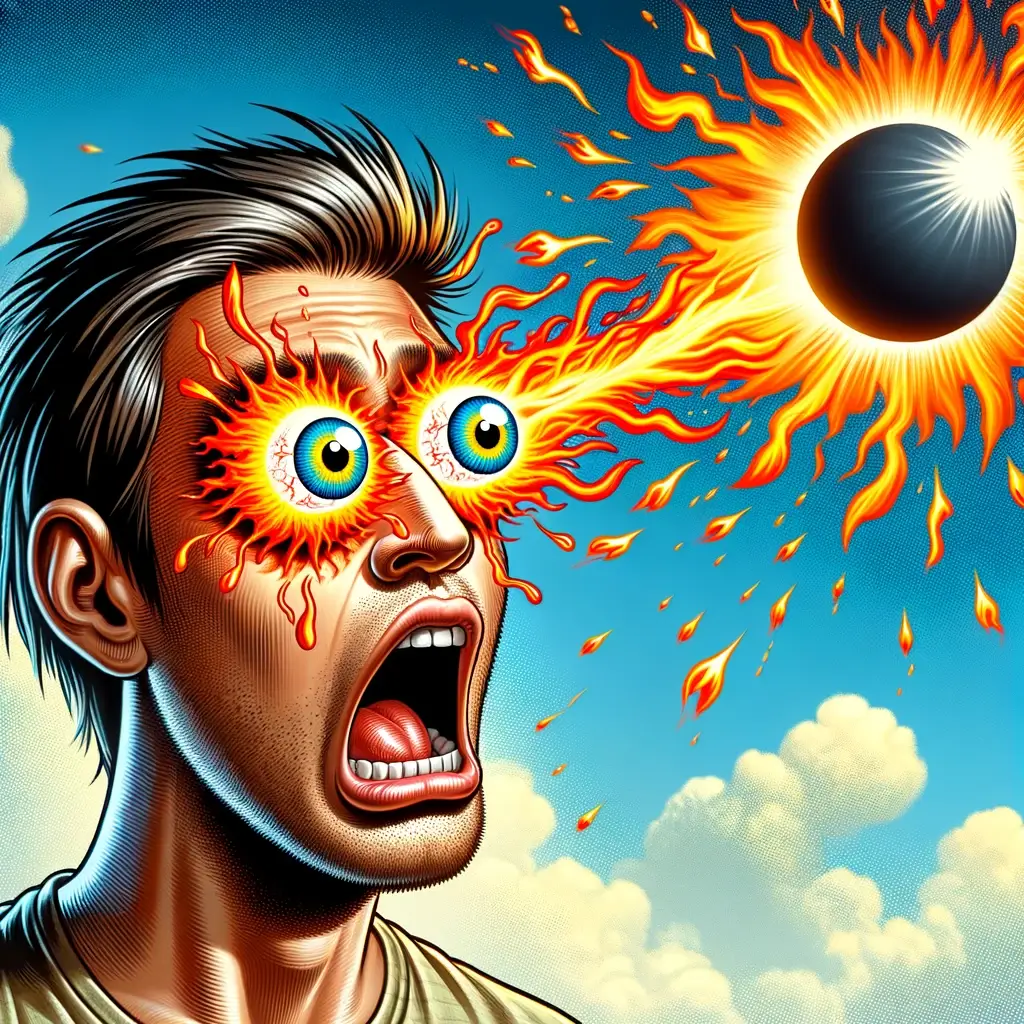Click to Read Sections:
- 1 Google, why do I have blind spots after looking at the eclipse?
- 2 What were the top Google searches indicating people hurt their eyes by looking directly at the solar eclipse?
- 3 Why would people look directly at the sun during an eclipse (except during totality) despite the warnings?
- 4 Where did most people who searched Google for “Why do my eyes hurt after the eclipse” live?”
- 5 What are the symptoms of eye damage from an eclipse?
Google, why do I have blind spots after looking at the eclipse?
On April 8, 2024, the moon covered the sun in totality from 1:29 PM Central Time in Uvalde, TX to 3:33 PM Eastern Time in Caribou, ME. In that hour the shadow of the moon traveled 1,846 nautical miles. That’s an average speed of 2,707 feet per second or more than half a mile each second. That’s the average speed. The actual speed of the shadow on the Earth is slower in Texas and faster in Maine due to the angle at which the shadow hits the Earth.
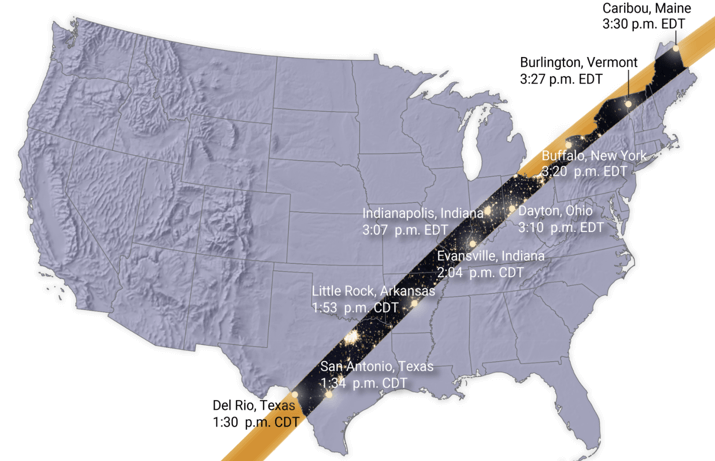
That’s about the speed of a bullet fired from an AR-15. The only planes that can keep up with the moon’s shadow are the SR-71 Blackbird, the F-15 Eagle, and the F-22 Raptor. The supersonic Concorde jet was almost as fast as the moon’s shadow. In 1973 scientists aboard the Concorde chased the total eclipse across the Sahara Desert. The Concorde flew at 1,350 mph (Mach 2) keeping up with the moon’s shadow moving over the Earth at 1,500 mph for 74 minutes. (The shadow was parallel to and near the equator, so it was traveling slower than the 2024 North American eclipse.)

What’s even faster than that? The rate at which people ran indoors and Googled “the eclipse hurt eyes” immediately after the eclipse – probably with a big white hole burned in their field of vision.
What were the top Google searches indicating people hurt their eyes by looking directly at the solar eclipse?
- hurt eyes
- eclipse hurt eyes
- eyes hurt solar eclipse
- solar eclipse eye damage
- my eyes hurt after looking at the eclipse
Other popular searches included “Why do my eyes hurt after the eclipse” and “How to know if the eclipse hurt your eyes”. (Can you see the shape of a partial eclipse burned into your field of vision? That’s how you know.)
Those Google searches ramped up about 12:20 PM Central Time, or about the time the moon started covering the sun in Texas. They hit their search volume apex and started dropping off at about 2:12 PM Central Time, or the time of totality in Cleveland, Ohio. By 4:30 PM Eastern Time, or when the moon moved out from in front of the sun for those in the Northeast, those Google searches dropped back down to the level two days before the eclipse, except for a small spike around 6 PM Eastern Time when people in Maine rode their moose into town to get an Internet connection.
Google Searches Over Time
Why would people look directly at the sun during an eclipse (except during totality) despite the warnings?
Maybe they didn’t know looking directly at the sun would hurt your eyeballs. Maybe these people live in caves and only venture out at night. During the eclipse, they were fooled into leaving the cave due to the moon’s shadow, and when the sky suddenly brightened after totality they looked up and screamed “My eyes!”
Even if aware of the risks, some might attempt to view the eclipse directly without wearing eclipse glasses. They may try to wear sunglasses, look through a beer bottle, or use nothing at all, not realizing the potential damage until it’s too late.
Or maybe it was a lack of resolve under beer pressure. I can just hear this redneck conversation in Texas or Arkansas:
- Redneck #1: “I’ll give you a beer if you look directly at the sun for one minute.”
- Redneck #2: No way, man. That’s like welding without dark goggles.”
- Redneck #3: “I’ll give you a whole six-pack of beer if you look into the sun for two minutes.”
- Redneck #2: Well, OK, but only if it ain’t Bud Light.”
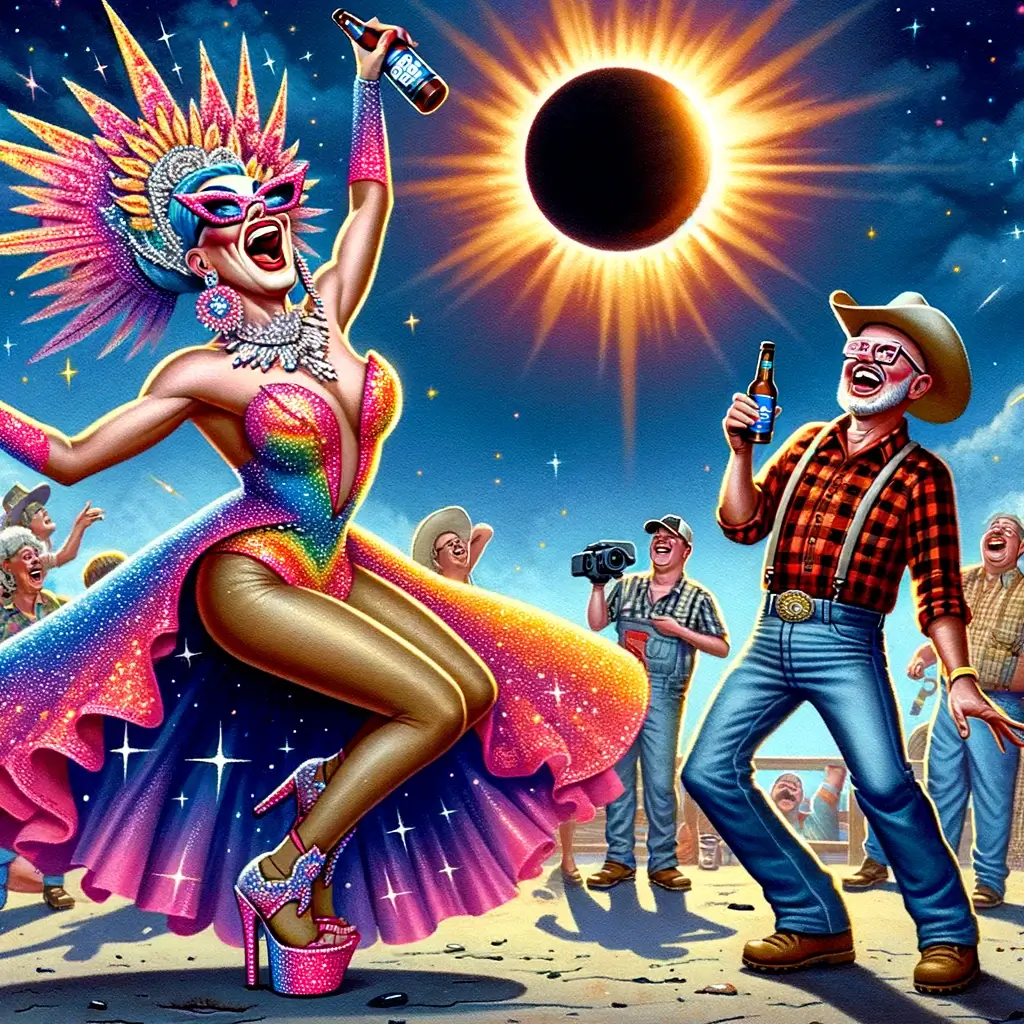
Where did most people who searched Google for “Why do my eyes hurt after the eclipse” live?”
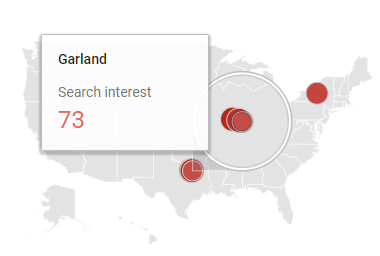
Two words: Garland, Texas. Fans of the animated TV show “King of the Hill” might know that the fictional city of “Arlan” is thinly disguised to mean Garland which is where the show’s creator Mike Judge grew up. And they can picture Hank, Bill, Dale, and Boomhauer standing in the alley, drinking Alamo beer, and looking up at the eclipse. Of course, Hank would likely be the only one wearing eclipse-viewing glasses. He’d probably wear two just to be safe.
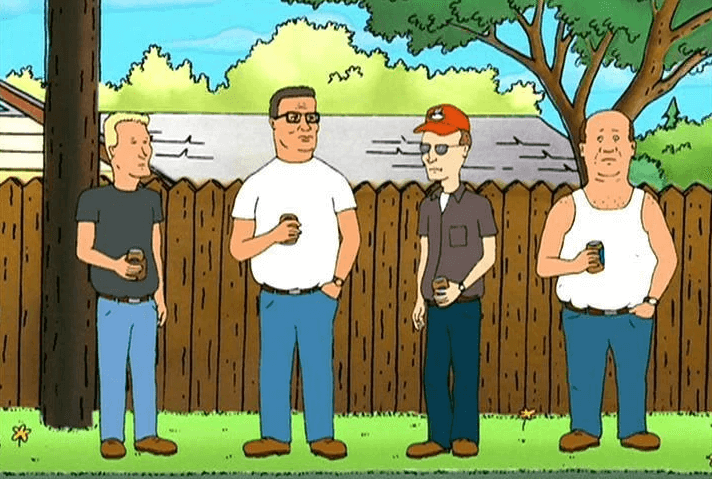
Where else were searches high for “eclipse hurt eyes”?
Just so you know I’m not picking on Garland, TX, the Dallas suburb of Richardson wasn’t far behind. But Presque Isle, Maine may hold the title. Searches for “eclipse hurt eyes” went through the roof in this lumber and potato town with a population of 9,000. Other areas included Parkersburg, WV, Syracuse, NY, Charleston, WV, and the Ft. Smith-Fayetteville area in Arkansas.
What are the symptoms of eye damage from an eclipse?
Most people who stare at the sun will suffer the consequences within a few days but won’t feel pain directly in the eyes. That’s because the retina doesn’t have pain receptors. But symptoms of solar retinopathy include:
- Blurry vision
- Headache
- A blind spot in your central vision in one or both eyes
- Increased sensitivity to light
- Distorted vision, in which a straight line looks bent, or a door jamb looks curvy
Luckily, permanent damage is rare. In 2017, 150 million Americans viewed the total solar eclipse, and only 100 documented cases of eye damage were documented across the US and Canada. But unfortunately for those, there’s no treatment for solar retinopathy, so the damage is permanent.
